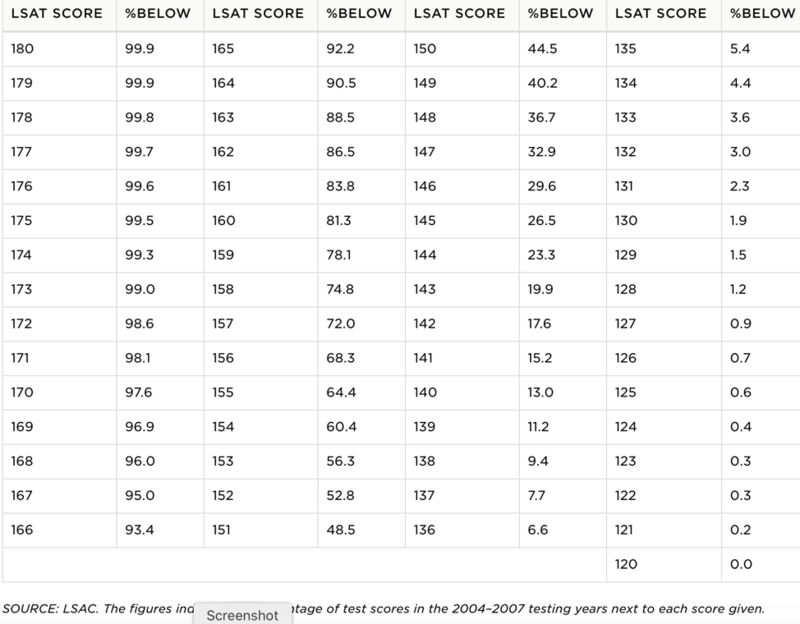Margaret Wells’s Updates
Update 2 - Is the LSAT a Fair Standardized Admissions Test?
The Law School Admission Test is a skills-based examination consisting primarily of multiple-choice questions, the results of which serve as a criterion for student admission into law school. The test consists of one-best-answer questions focusing on analytical reasoning, reading comprehension, logical reasoning, and unscored pretest items that are used on a trial basis to allow test developers to review the new items’ performance for potential use on future versions of the examination.
According to the Law School Admission Council (LSAC), the LSAT is “the only test specifically designed to provide essential information about whether a candidate has the skills needed to succeed in law school (LSAC, 2016).” The LSAC points to its test-development processes – exhaustive question review by experts, statistical analysis to flag questions that do not perform well, and elimination of potentially biased questions – as integral to its commitment to fairness. In addition, the LSAT provides its member law schools with fairness guidelines that it recommends should be used as a criterion for admission (LSAC, 2014). Namely, the LSAC suggests that the LSAT (as for the SAT in the setting of College Admissions) is not to be used by law schools as the sole criterion for admission. Moreover, the LSAC offers its member law schools the free service of conducting studies to analyze correlations of LSAT scores with other performance metrics to allow for better future use and predictive utility of scores in the admissions process. The LSAT also recommends strongly against the use of cut-off scores as a metric for admission (LSAC, 2014).
Despite these process safeguards, the LSAT is considered by some critics to provide unfair advantages to those in higher socioeconomic classes (Mystal, 2010; Baron, 2010). These critics suggest that the cost of taking the examination includes not only the exam fee itself ($190) but also the expense associated with taking costly exam-prep courses in addition to the hours of time required to study.
Criticisms focus on the analytical reasoning questions, also called “logic games,” which were added to the LSAT in 2014. (but see Turner, S, Ndefo-Haven, A, 2019, below for current developments). The objective of these questions is to tease out certain rules and conditions upon which the test-taker can make inferences and draw conclusions. Test-takers have reported stumbling significantly over the 24 questions (Kitchener, 2016). Performing poorly on this section can reduce examinees’ overall score, and this is significant when average performance is about 150, and many of top law schools require scores of 160 or higher (Princeton Review). The following norm table shows the distribution of LSAT scores by percentile.
The table below shows a sample law school profile, depicting percentage of applicants accepted and average LSAT Scores.
Although individual institutions determine the importance of the LSAT versus other performance measures (GPA, references, essay) and some schools have recently waived the requirement for the LSAT in favor of the GRE (Randazzo, 2017), change in the legal industry can be slow, and many law schools still require the LSAT.
While the cost of purchasing a print exam-prep book that costs about $60 and is developed specifically to assist in answering the analytic reasoning questions may be affordable for many students, such preparation methods are found often to be unsuccessful in teaching the skill set required to answer these logic-based questions, which can be visual in nature and require drawing of charts and graphs. Many students now rely on in-person test-prep courses for this skill, with average costs of $1300; personal tutors are also used by many, with an average cost of $200 an hour (Kitchener, 2016). These costs quickly become cost-prohibitive for many students who are not socioeconomically advantaged.
Besides the issues involving socioeconomic disparities, these questions have also been found to present accessibility issues for learners with disabilities. In fact, in 2019, a student who is legally blind won a case against the LSAC in which the LSAC stipulated that the LSAT will no longer include the analytical reasoning section (Turner, S, Ndefo-Haven, A, 2019).
Continual scrutiny by educators of potential biases within the LSAT is necessary to ensure a fair testing process, as well as careful consideration by law schools of the value they will assign to LSAT scores in the admissions process going forward.
References
Baron, N (2010). LSAT: The next “wealth test” of college seniors. Retrieved January 23 from https://www.huffpost.com/entry/lsat-the-next-wealth-test_b_577742
Kitchener, C (2016). How the LSAT destroys socioeconomic diversity: The Logic Games section forces test takers to master a new type of thinking—and that knowledge is not cheap. Retrieved from https://www.theatlantic.com/education/archive/2016/10/the-lsat-is-rigged-against-the-poor/504530/10.18/2016.
Mystal, E (2010). LSAT: Testing wealth, not logic. Retrieved from https://abovethelaw.com/2010/05/lsat-testing-wealth-not-logic/5.21/2010.
Randazzo, S (2017). Law Schools Say: Please come, no LSAT required. The Wall Street Journal. Retrieved January 24, from https://www.wsj.com/articles/law-schools-say-please-come-no-lsat-required-1512556201/12.07/2017.
The Law School Admission Council (n.d.). LSAT fairness procedures: The Law School Admission Council. Retrieved January 25, 2020 from https://www.lsac.org/about/lsac-policies/lsat-fairness-procedures. https://www.princetonreview.com/law-school-advice/lsat-scores
The Law School Admission Council (2014). Cautionary policies concerning LSAT scores and related services (pdf). Retrieved January 2020 from https://www.lsac.org/about/lsac-policies/lsat-fairness-procedures
The Law School Admission Council (2016). How our test contributes to comprehensive and fair law school admissions. Retrieved January 20, from LSAC Report December 2016 at https://www.lsac.org/lsacreport/december2016/lsacreportdecember2016.pdf.
The Princeton Review (n.d.). Good LSAT scores for law school. Retrieved January 2020, from https://www.princetonreview.com/law-school-advice/lsat-scores.
Turner, S, Ndefo-Haven, A (2019). LSAT removes logic games section. Retrieved January 2020, from https://yaledailynews.com/blog/2019/10/14/lsat-removes-logic-games-section/10.14/2019.



